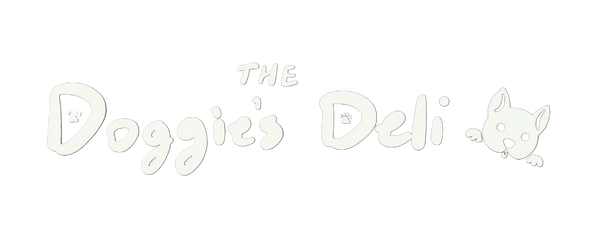
Carbs for Dogs: Understanding the Best Carbohydrates for Your Canine
Share
Carbohydrates are one of three macronutrients, alongside fats and proteins, that supply a vital energy source in calories for many animals, including dogs. They can be split into two groups: complex carbohydrates and simple carbohydrates. Although carbs are often associated with sugars and grains, they also include dietary fibers and complex starches found in fruits, vegetables, and pulses. Dogs are omnivores and can digest nutrients from both plant and animal sources, unlike cats, who are strict carnivores. Despite a lingering misconception among pet owners that crabs are unnecessary and harmful for dogs, however, quality carbohydrates are essential for steady energy, fiber, and important nutrients, especially for growing puppies, active dogs, and working breeds.
Although carbs are not necessarily required in a dog’s diet, carbs play a valuable role, and understanding their role in a dog’s diet is crucial for making informed decisions about your dog’s diet. This guide helps explain how dogs use carbs, how to adjust intake based on age, activity, and diet, and which types are beneficial or harmful. Whether you’re feeding dog food, homemade meals, or choosing supplements, understanding carbs is key to ensure your dog’s long-term nutritional balance and disease prevention.
Why Do Dogs Need Carbohydrates in Their Diet?
Dogs need carbohydrates in their diet for immediate and long-lasting energy, which is beneficial for maintaining vitality throughout the day. They serve as the primary macronutrients that act as the body’s main source of energy, and incorporating them into your dog’s diet brings valuable dietary benefits. These include dietary fiber for improved digestion and essential nutrient diversity that support overall health.
Carbs play a crucial role during different stages, especially for active dogs like working breeds or those in sports, as they need carbs for stamina and endurance. Moreover, carbs rich in fiber aid digestion, improve stool quality, boost immunity, and act as prebiotics for gut health. Also, they are crucial during growth, pregnancy, recovery, and intense physical activity, helping maintain optimal performance and health.
How Do Dogs Digest Carbohydrates?
Dogs begin digesting carbohydrates in the small intestine, where pancreatic amylase, an enzyme, breaks down starch into simple sugars. Unlike humans, dogs don’t start digesting crabs in the mouth. Simple carbohydrates like white rice or sugar-based treats are broken down quickly and absorbed rapidly, causing a spike in energy. On the other hand, complex carbs in sweet potatoes, brown rice, and oats take longer to break down and provide a more gradual release of energy, and help keep the dog feeling full for a longer time.
In addition, the rate of digestion plays a crucial role in your dog’s overall health, as complex carbs help stabilize blood sugar and prevent mood swings and overeating. On the other hand, fast-digesting simple carbs can cause crashes, hyperactivity, and fat storage. Poor-quality carbs, imbalanced gut bacteria, or enzyme deficiencies may cause diarrhea, bloating, and gas. However, feeding high-quality, digestible carbs in moderation supports well-being and digestion.
What Are the Best Carbohydrates for Dogs?

The best type of carbohydrates for dogs are those that are nutrient-dense, low glycemic, and minimally processed foods like whole grains, starchy vegetables, legumes, and fruits, which provide slow-releasing energy without spiking blood sugar. Likewise, these food sources retain essential nutrients that benefit your dog’s overall health, unlike heavily processed foods like refined grains or corn syrup. Incorporating high-quality carbs in your dog’s diet contributes to daily energy needs as well as supplies important vitamins, dietary fiber, and minerals. For benefits like this, include good carbs as a balanced portion of your dog’s meals or homemade treats and ensure they complement fat and protein sources for a balanced diet.
Whole Grains
Whole grains like brown rice, oats, quinoa, and barley are excellent sources of complex carbohydrates for dogs. They are rich in B vitamins, slow-digesting carbs, and dietary fiber that provide a steady energy supply throughout the day. These grains support gut health, aid in digestion, and promote a healthy metabolism. You should cook these items thoroughly and should be properly portioned, typically making up 5% to 30% of a dog’s total diet. Although dogs rarely have grain allergies or gluten sensitivity, stop feeding them if they show signs or symptoms of discomfort.
Starchy Vegetables
Starchy vegetables like pumpkin, potatoes, and butternut squash are excellent for dogs as they are packed with Vitamin A, antioxidants, and beta-carotene. These vegetables support vision, skin, and immune health, whereas their natural sweetness makes them a nutritious alternative to processed treats. In addition, these vegetables are easy on the digestive system, making them suitable for dogs with food allergies and sensitive stomachs. You should feed them to your dogs in small portions in mashed, baked, or pureed form without any spices, butter, or salt a few times a week for nutritional benefits and variety in your dog’s meals.
Legumes
Legumes such as peas, lentils, and chickpeas are nutritious carbohydrate sources offering multiple benefits for dogs and supporting digestion with fiber and plant-based protein. Likewise, they provide minerals like iron that contribute to oxygen transport and overall vitality. The legumes should be well-rinsed and cooked thoroughly to remove any natural compounds that hinder digestion. While small amounts of legumes can boost fiber and protein intake, feeding excessive legumes, especially grain-free dog foods, can be linked to a serious heart condition called canine dilated cardiomyopathy (DCM).
Fruits
Fruits like blueberries, bananas, and apples (seedless) can be healthy and low-fat treats for dogs when fed appropriately, as they are rich in vitamins, antioxidants, and natural sugars that support overall health. Apples provide vitamin C and crunch, helping with oral health, blueberries promote brain and cell function, and bananas offer potassium and fiber for digestion. You can offer fruits as an occasional snack, diced, mashed, or blended into meals or frozen into small treats for hot days. As fruits are naturally high in sugar content, overfeeding them can lead to weight gain or blood sugar imbalances, especially in smaller or diabetic dogs.
Which Carbohydrates Should Dogs Avoid?
Dogs should avoid over processed carbohydrates such as refined grains and common fillers like maltodextrin and corn syrup, as they offer little to no nutritional value and can cause spikes in blood sugar, increasing the risk of diabetes and obesity. It is also wise to avoid meals or products that contain low-quality, hidden carb sources and toxic items like xylitol (a sugar substitute), certain types of bread dough, and chocolate, as they cause health issues like digestive upset, allergic reactions, and poisoning. Carefully choosing wholesome and natural carb sources helps maintain a healthy weight, reduce the risk of food sensitivities, and support overall health and well-being.
Harmful Carb
Some carbohydrates, like white bread, white rice, refined flour, and corn syrup, are harmful to dogs as they come from overly processed and refined sources. These ingredients are commonly found in supermarket treats and low-quality dog foods and provide very little nutritional value. As they are often used as cheap fillers, they may lead to rapid spikes in blood sugar and can contribute to weight gain, diabetes, and energy crashes over time. Moreover, they’re often considered “empty calories” that lack essential vitamins, minerals, and fiber that your pets need for overall growth and health. You should look for whole and natural carbohydrate sources for better health and growth.
Toxic Foods
Certain toxic foods like raisins and grapes, while healthy for humans, can cause sudden kidney failure in dogs, even in small amounts. Simply, food that contains xylitol, found in sugar-free gums, some peanut butters, and baked goods, is highly dangerous and can lead to seizures, liver failure, hypoglycemia, or death in some cases. Even a small quantity of these foods can be lethal to dogs, therefore, it is crucial to read ingredient labels carefully and avoid sharing any human snacks or baked goods with your dog unless they’re completely safe. Moreover, you should stick to vet-approved treats and natural, dog-friendly carbs like brown rice and sweet potatoes.
High-Risk Fillers
High-risk fillers such as cornmeal, soy flour, wheat gluten, and unnamed grain by-products are widely found in low-quality dog foods. Although these ingredients are used to bulk up the product cheaply, they offer no nutritional value for dogs and can trigger a range of health issues like skin allergies, ear infections, digestive upset, and poor coat in sensitive dogs. These health issues arise due to the body’s inflammatory response to ingredients often found in mass-produced dog biscuits and budget kibble. It is crucial to read labels carefully and avoid vague terms like “grain by-products” or animal digest, which indicate that low-quality ingredients are hidden under generic labels.
How Much Carbohydrate Should a Dog’s Diet Include?
A dog’s diet should contain 30 to 40% of carbs, depending on factors like activity level, age, and breed. According to the Association of American Feed Control Officials (AAFCO) and National Research Council (NRC), there is no requirement for carbs in dog food. Their purpose is to serve as a primary energy source for working and active dogs who need sustained energy throughout the day. However, carbs are not considered essential in the same way as fat or protein, although they play an important role in providing quick and usable energy.
A balanced diet is crucial for dogs, as too few carbs can lead to fatigue, poor recovery after any physical activity, and low energy, while too many carbs can lead to obesity and nutrient imbalance. Pet owners should review the nutritional breakdown on pet food labels or consult a vet for a tailored recommendation for their dog’s individual needs to determine the right amount. Moreover, adjusting carb intake based on a dog’s lifestyle is key, as active dogs may benefit from more, while sedentary or senior dogs require fewer to maintain their metabolism and healthy weight.
Can Carbohydrates Cause Health Issues in Dogs?
Yes, carbohydrates can cause health issues in dogs when they’re consumed in large amounts or from low-quality sources. As mentioned above, overfeeding carbs like white rice or corn syrup can lead to diabetes, obesity, and digestive problems. Likewise, dogs with grain sensitivities or allergies to soy or wheat can develop skin itching, irritation, or gastrointestinal discomfort. However, carbs sourced from whole, nutritious ingredients like oats or sweet potatoes support digestion, energy, and overall health of a dog. The end goal is to provide a balanced diet with high-quality ingredients and avoid using carbohydrate-heavy foods as fillers.
Obesity Risks
Too many high-calorie carbs from refined sources like sugary treats or white rice in a dog’s diet can lead to fat storage. Unlike protein and fat, which are efficiently used by a dog’s body, excessive carbs convert to glucose and are stored as body fat if not burned off through physical activity, causing gradual weight gain and increased health risks. Since dogs can’t digest surplus glucose as effectively, owners should monitor for sudden weight gain, difficulty during physical activity, and reduced energy levels to adjust their diet. Nonetheless, portion-controlled and balanced meals with regular physical exercise help maintain a dog’s healthy weight.
Blood Sugar Spikes
When simple carbohydrates quickly break down into glucose, it can cause a sudden spike in blood sugar levels, which can overwhelm a dog’s system. Although healthy dogs can regulate this with insulin, consistent intake of high-glycemic carbs may strain their metabolism over time, especially in diabetic-prone breeds or older dogs. Likewise, dog owners may also notice moodiness, frequent hunger, and energy crashes after meals, which indicates unstable glucose levels in them. You can prevent it by opting for low-glycemic carbs like oats, sweet potatoes, or pumpkin that release energy slowly and support balanced blood sugar throughout the day.
Allergies
Some dogs can develop allergies or intolerances to certain carbs, especially grains like corn, soy, and wheat, or high-risk fillers found in commercial dog food. This may trigger symptoms like red or inflamed paws, itchy skin, frequent ear infections, and runny or inconsistent stools. As these symptoms can be mistaken for other health issues, it is important to observe and monitor your dog’s behavior. You can go for dog foods with complex carb sources like quinoa or sweet potatoes, or consider a grain-free diet. In addition, a tailored approach ensures they get the right nutrients they need without unwanted allergic reactions, as every dog is different.
What Other Nutrients Are Vital for Your Dog’s Health?

Besides carbohydrates, dogs require a balanced diet of vitamins, minerals, protein, fats, and water for optimal health. Proteins sourced from high-quality chicken, beef, or fish are essential for muscle development, tissue repair, and a strong immune system. Likewise, fats like omega-3 and omega-6 fatty acids support brain function, promote healthy skin and coat, and Vitamins and minerals like vitamin D, B vitamins, and calcium help with overall bone growth to nerve function. Moreover, carbohydrates complement these nutrients by offering energy, especially beneficial for active dogs, and aid in the absorption of certain nutrients.
-
Vitamins
Vitamins play a crucial role in your dog’s health and support everything from bone development, vision to immune function. The vitamins for dogs work alongside minerals, fats, proteins, and carbohydrates to ensure optimal physiological function and long-term wellness. The key to avoiding deficiencies and maintaining vitality is by ensuring your dog gets the right amount of vitamins. -
Proteins
Protein serves as the building block for muscles, hormones, skin, and enzymes, and plays a crucial role in your dog’s overall health. They support repair and growth as well as help maintain a healthy immune system. The best protein sources for dogs are chicken, beef, and fish, while peas and lentils provide plant-based alternatives. Feeding high-quality chicken treats for dogs can be a great way to add protein to their diet. -
Fats
Fats serve as a concentrated source of energy, supporting cell function, and aiding in the absorption of fat-soluble vitamins. It helps maintain a shiny coat, healthy skin, supports brain and eye development, and regulates body temperature. Some of the healthy fats for dogs are chicken fat, fish oil, flaxseed oil, and plant-based oils like canola oil or sunflower oil. -
Minerals
Minerals for dogs are essential for their overall health, like supporting everything from strong bones and teeth to nerve function and fluid balance. Minerals are divided into macrominerals like calcium, phosphorus, and magnesium, which are needed in larger amounts, and trace minerals like iron, zinc, and selenium, needed in smaller amounts but still vital.
Choosing the Right Treats: Quality Ingredients Matter for Your Pet’s Health
While choosing treats or dog food for your dog, ingredient quality should be as important as its taste to support long-term health. Although AAFCO or the NRC doesn’t consider carbs as essential nutrients, they offer valuable energy for active dogs. Nutrient-rich sources like oats, peas, and sweet potatoes offer steady energy, essential vitamins, and fiber, making them ideal and balanced pet treats that support digestion and overall growth and health. Also, you should avoid low-quality fillers to prevent obesity and reduced nutritional value. Pet owners can make a smarter choice by choosing The Doggie’s Deli, where treats are made from fresh USDA meats, wild-caught fish, and locally sourced vegetables. We ensure your dog gets both tasty and nutritional dog treats that are made from premium and digestible carbs like pears and sweet potatoes to prevent blood sugar spikes and nutritional imbalances, which are common in lower-quality treats. Choose healthy treats from us and take a step toward better health and a long life for your furry friend.










